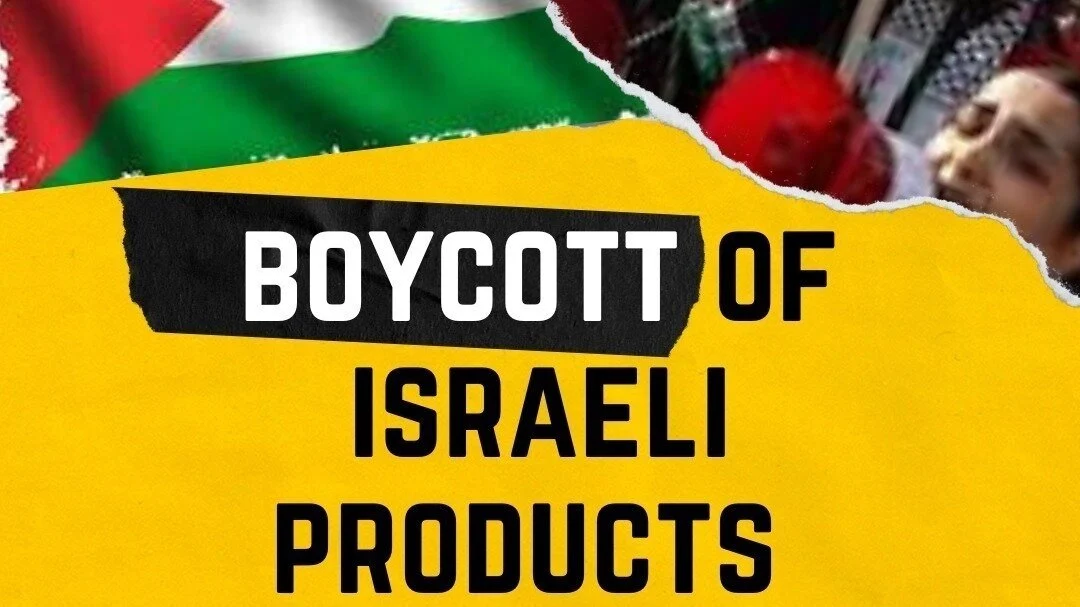From McDonald's to Coca-Cola: Indians Lead Boycott of US-Israeli Brands in Solidarity with War-torn Gaza

Sumaiya Ali, TwoCircles.net
New Delhi: It has been more than seven months since the Israel-Gaza war began, exposing the world to unimaginable horrors coming from the war-torn strip. As the situation escalated, thousands of Muslims in India shared pictures of wounded and deceased children, highlighting the atrocities occurring in the disputed territory.
In a show of solidarity with Palestinians, people in India joined the global boycott movement against Israeli and US-based products perceived to have links to Israel. This movement is known as BDS.
What is BDS?
BDS stands for Boycott, Divestment and Sanctions against Israel. It is a global, non-violent protest agitation aimed at pressuring the Israeli government through economic and cultural boycotts.
The movement was initiated in 2005 by a coalition of 170 Palestinian civil society groups.
Which Brands are Being Affected?
Companies like McDonald’s, Coca-Cola, Pepsi, KFC and Starbucks are among the top names on the boycott list. Shortly after the October 7 attack by Hamas on Israel, McDonald’s came under fire for providing free meals to the Israeli Defense Forces (IDF) and hospitals treating IDF members.
This move was poorly received by Muslims worldwide, who viewed it as McDonald’s aligning with the IDF.
“McDonald’s was my favorite go-to option for meals, but after I heard about their support for the IDF, I made sure to never order from them again,” Shahzaib Khan, 30, who hails from Uttar Pradesh, told TwoCircles.net.
While McDonald’s outlets in the UAE and Malaysia have expressed concern for the situation in Gaza, McDonald’s India has not issued any statements.
A staff member of the American multinational fast food chain mentioned the company does not want to make any political statements.
Speaking on the condition of anonymity, a source revealed that the company’s revenue in India this year is 2% lower than last year, a drop attributed to the boycott.
“To counter the boycott, the brand is focusing on offering low-cost meals and working on customer feedback to add new items to the menu,” he added.
People are also sharing boycott messages on WhatsApp and other social media platforms.
Paresa, a 29-year-old student from Bihar, regularly posts the boycott list on her social media accounts and reminds her family to remember the brands to boycott.
Sarah Suhail, a café owner in an upscale market in Lucknow, has replaced the boycotted items with local alternatives. Suhail is using up existing stock and has found other options for the future.
Even in smaller towns, the boycott movement is making an impact. Nawaz Alam, a shopkeeper in Shahjahanpur, Uttar Pradesh, reported a visible decline in sales of soft drinks like Pepsi and Coca-Cola.
“Customers are buying more drinks like Campa Cola and zeera drinks, so that’s what we are stocking now,” he said.
The Global Boycott
In Malaysia, around 100 KFC outlets have temporarily closed due to losses incurred since the boycott began after October 7. In April 2024, McDonald’s bought back its 225 franchise outlets in Israel.
In Turkey, Recep Tayyip Erdogan’s government has removed Coca-Cola and Nestlé products from the parliamentary campus menu.
The boycott has garnered significant attention, highlighting global support for Palestine. Several restaurants in Denmark have reportedly stopped offering Pepsi and Coca-Cola products.
Youth and the Boycott Movement
A significant number of youth are joining the boycott movement. Many of these individuals get their news primarily from Instagram, where they learned about the agitation.
Insha, an 18-year-old recent school graduate, said the boycott is “for life”. Another student, Mustafa, ensures he finds alternatives and, if none are available, prefers not to buy anything that “supports oppression”.
“This is the least we can do as Muslims and humans,” he added.
